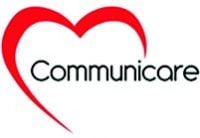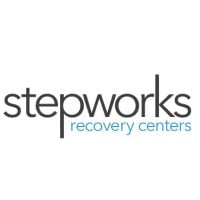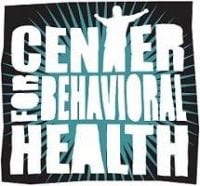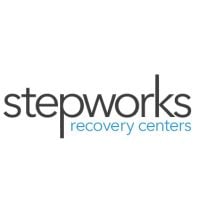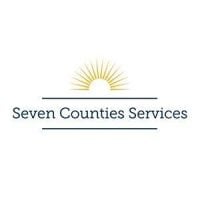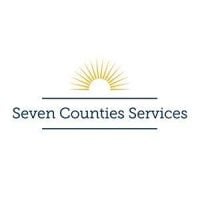Communicare - Passages Women's Transitional Housing
Drug Rehab Center in Elizabethtown, Kentucky
Communicare - Passages Women's Transitional Housing in Elizabethtown, Kentucky specializes in addiction treatment, offering a safe and supportive environment for women while providing comprehensive treatment solutions for individuals suffering from alcoholism, dual diagnosis, opioid addiction, and drug addiction.
About Communicare - Passages Women's Transitional Housing in Kentucky
Communicare - Passages Women's Transitional Housing offers comprehensive mental health and addiction treatment services in Elizabethtown, Kentucky. This outpatient facility provides a person-centered approach to healing, tailoring treatment to each individual's unique journey.
Communicare's dedicated staff strives to ensure quality behavioral healthcare throughout the Lincoln Trail area. Their mission focuses on serving those with mental illness, behavioral health issues, developmental disabilities, and chemical dependencies.
Accredited by SAMHSA, this facility was founded in 1967 and offers 11 beds for transitional housing. Treatment methods include individual, group, and family therapy, along with alcohol and drug counseling, psychiatric care, and school-based services. Outpatient programming allows individuals to receive support while residing at home or in a sober living environment.
- Personalized treatment plans
- Comprehensive mental health services
- Safe, supportive transitional housing
Communicare - Passages Women's Transitional Housing specializes in treating addictions to alcohol, opioids, and other substances, as well as co-occurring mental health disorders like depression, anxiety, and bipolar disorder.
Genders
Ages
Modality
Additional
Accreditations
SAMHSA
Conditions and Issues Treated
Opioid addiction has become a significant health problem in the United States. In 2015, there were 91 opioid overdose-related deaths per day, with a substantial increase in mortality rate in 2014.
When opioid addiction has reached a point where a person’s life becomes unmanageable, treatment options are available to help them get sober. Treatment that includes medical care with medications and counseling can help a user transition into sobriety.
When someone in struggles with both addiction and mental or emotional illness, this is considered a dual diagnosis. Dual diagnosis treatment can include therapy for these issues to happen simultaneously, which will allow either of them to be treated effectively.
Sometimes people who have suffered from addiction disorder also suffer from co-occurring disorders such as depression, anxiety, bipolar disorder, etc., making them “dual diagnoses.” Dual diagnoses require specialized treatment programs where drug and alcohol addiction are addressed along with psychiatric illnesses. Some rehabilitation facilities provide patients suffering from cooccurrences a program with highly integrated services and a clean environment with few distractions to help them succeed.
Levels of Care Offered
This center offers a variety of custom treatment tailored to individual recovery. Currently available are Aftercare Support, Drug Rehab, Dual-Diagnosis, Inpatient, Residential, Sober-Living / Half-Way, with additional therapies available as listed below.
Inpatient treatment for alcoholism or drug addiction is an option that provides the addict with a supportive environment in which they can stop using. After detox, an inpatient treatment center provides a structured environment for the addict to recover from their addiction and begin taking steps toward a lifetime of sobriety.
This type of treatment is appropriate for addicts that are most in need of intensive care and supervision. This includes those who were unable to quit on their own, those who need more structure than they can get in outpatient treatment, and those whose addiction has led them into legal trouble or severe health problems.
Sober living homes, also known as halfway houses, provide recovering people with a structured drug-free environment to live in that bridges inpatient rehab and the much less structured world of outpatient rehab. Sober living homes offer a person early in recovery the opportunity to practice recovery skills in a safe environment.
The atmosphere in sober living homes is less restrictive than in an inpatient facility. Members have to follow many rules, including not drinking and using drugs and paying rent and bills. There is no limit to the period of stay. As long as you stay, you should follow the rules because it’s the opportunity for individual and group sobriety.
Residential treatment programs are those that offer housing and meals in addition to substance abuse treatment. Rehab facilities that offer residential treatment allow patients to focus solely on recovery, in an environment totally separate from their lives. Some rehab centers specialize in short-term residential treatment (a few days to a week or two), while others solely provide treatment on a long-term basis (several weeks to months). Some offer both, and tailor treatment to the patient’s individual requirements.
Completing a drug or alcohol rehab program is only the first step. Then comes aftercare support. These services include sober living accommodations, career counseling, and AA/NA programs for those struggling with sobriety or who want help maintaining it after initial rehab at an addiction facility.
They can last up to a year or more depending on what’s needed most urgently after the earlier stages are completed.
Therapies & Programs
Because no single treatment is effective for all addicts, the goal of treatment and therapy should be to figure out what works best for each individual. Tolerance and withdrawal levels differ from person to person, affecting the treatment intensity required. Addiction treatment should aim to help addicts develop healthy coping mechanisms for dealing with their addiction and its underlying causes.
Group therapy can help build a stronger support system and give addicts in Elizabethtown, KY insight into their addiction that they gain through shared conversations. Group therapy occurs in a controlled group environment, exclusive of one on one meetings. This makes it safer for patients to feel comfortable sharing the struggles they’re going through and gaining perspective.
Trauma therapy is beneficial for people who are recovering from drug addiction because it helps them heal from past traumas that may have caused them to turn to harmful substances or led them to experience negative emotions that contributed to their destructive behaviors.
This type of treatment works by processing difficult experiences so individuals can learn how to process these events without having to turn to substances for coping.
Trauma therapy can help addicts in the following ways:
- Helps individuals understand their experiences and emotional responses to difficult events, including why they turned to drugs or alcohol
- Provides them with comfort and support while working through difficult emotions related to these traumatic experiences
- Offers an opportunity for addicts to have a voice and be heard, which can improve their self-esteem
- Can help them develop coping skills so they can better respond to triggers instead of turning to substance abuse.
Cognitive-behavioral therapy is a technique that is used to help people with addiction. Specifically, it is a way of identifying thoughts and behaviors that cause the addiction. It is typically used in an individual counseling session.
The content explains cognitive behavioral therapy and how it works to address some behaviors that may be leading to unintended consequences in their life, as well as its benefits for those seeking sobriety.
It works by helping people to talk through their issues and addressing the thoughts that cause said behaviors. It is an excellent way of learning about oneself and one’s perception of the world.
Addicts seeking sobriety can find quick results with Rational Emotional Behavior Therapy. This type of counseling offered by Communicare - Passages Women's Transitional Housing replaces negative and self-limiting thoughts with positive and productive behaviors. This allows addicts to move forward without having to deal with ongoing treatment throughout their lives. Individuals who are seeking sobriety can find quick results with Rational Emotional Behavior Therapy.
Payment Options Accepted
For specific insurance or payment methods please contact us.
Communicare Associated Centers
Discover treatment facilities under the same provider.
- Communicare - Nelson County Clinic in Bardstown, KY
- Communicare Clinic - Elizabethtown in Elizabethtown, KY
- Communicare - Marion County Clinic in Lebanon, KY
- Communicare - Hardin County Clinic in Radcliff, KY
- Communicare - Panola County Office in Sardis, MS
Learn More About Communicare Centers
Additional Details
Specifics, location, and helpful extra information.
Elizabethtown, Kentucky 42701 Phone Number(270) 737-6449 Meta DetailsUpdated April 15, 2024
Staff Verified
Communicare - Passages Women's Transitional Housing Patient Reviews
There are no reviews yet. Be the first one to write one.
Elizabethtown, Kentucky Addiction Information
Kentucky ranks among the top ten states for opioid-related overdoses. Most of these are due to heroin, fentanyl, and prescription opioid use. A little over 11% of the Kentucky population abuses alcohol in a given year. More than 15% of Kentucky adults admit to participating in binge drinking every month.
In Elizabethtown, Kentucky, drug addiction is a significant problem. According to the National Institute on Drug Abuse, there were 374 drug overdose deaths in Elizabethtown in 2016. The most commonly abused drugs are methamphetamine, heroin, and prescription opioids. There are many different drug treatment options available in Elizabethtown, Kentucky. Some of the most common types of treatment include inpatient treatment, outpatient treatment, and detox programs.
Treatment in Nearby Cities
- Benton, KY (147.9 mi.)
- West Liberty, KY (144.1 mi.)
- Munfordville, KY (29.8 mi.)
- Hope, KY (117.2 mi.)
- Pikeville, KY (184.9 mi.)
Centers near Communicare - Passages Women's Transitional Housing
The facility name, logo and brand are the property and registered trademarks of Communicare - Passages Women's Transitional Housing, and are being used for identification and informational purposes only. Use of these names, logos and brands shall not imply endorsement. RehabNow.org is not affiliated with or sponsored by Communicare - Passages Women's Transitional Housing.
